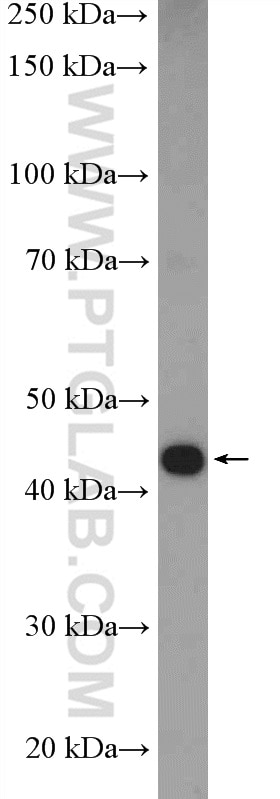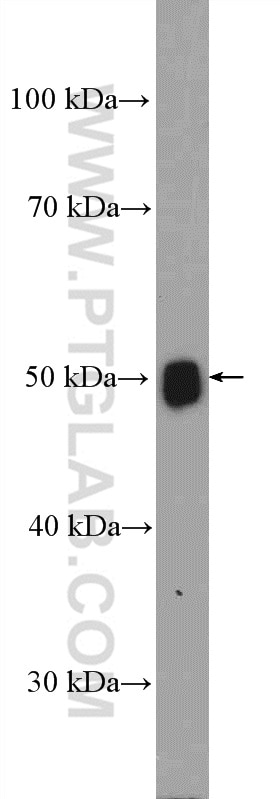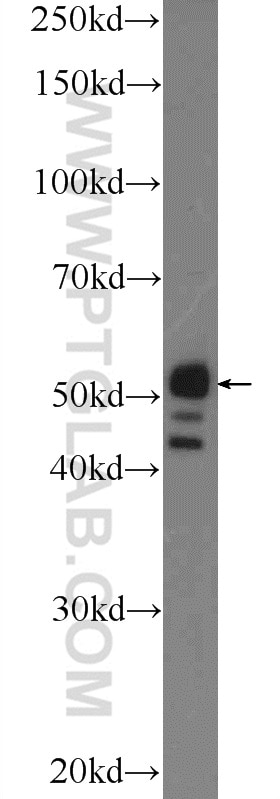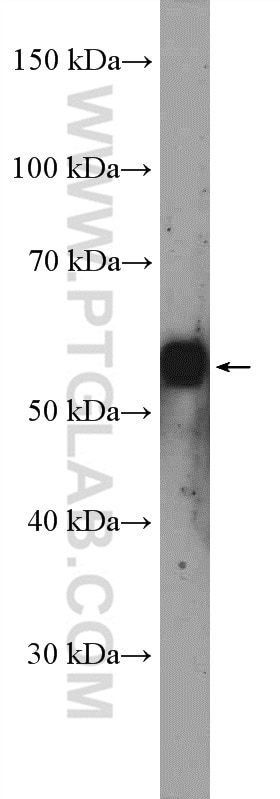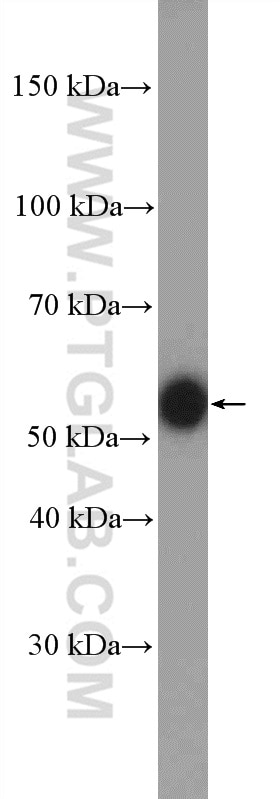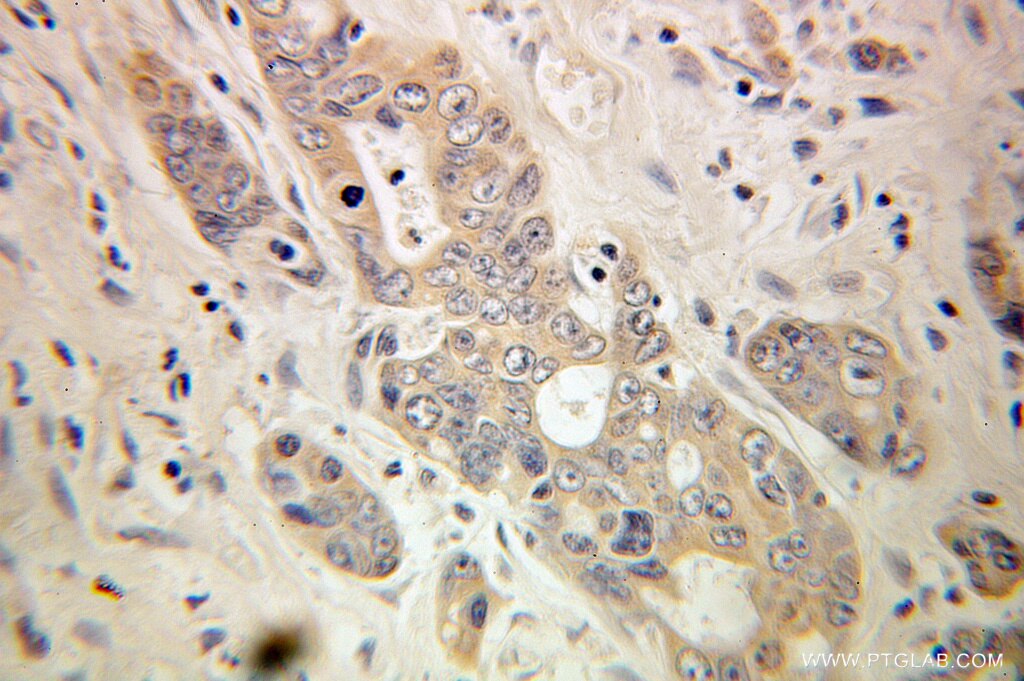Torsin A Polyclonal antibody
Torsin A Polyclonal Antibody for IHC, WB,ELISA
Host / Isotype
Rabbit / IgG
Reactivity
human, mouse, rat
Applications
WB, IHC, ELISA
Conjugate
Unconjugated
Cat no : 10296-1-AP
Synonyms
Validation Data Gallery
Tested Applications
| Positive WB detected in | mouse brain tissue, HEK-293 cells, mouse kidney tissue, mouse liver tissue, rat brain tissue |
| Positive IHC detected in | human colon cancer tissue Note: suggested antigen retrieval with TE buffer pH 9.0; (*) Alternatively, antigen retrieval may be performed with citrate buffer pH 6.0 |
Recommended dilution
| Application | Dilution |
|---|---|
| Western Blot (WB) | WB : 1:500-1:2000 |
| Immunohistochemistry (IHC) | IHC : 1:20-1:200 |
| It is recommended that this reagent should be titrated in each testing system to obtain optimal results. | |
| Sample-dependent, Check data in validation data gallery. | |
Published Applications
| WB | See 1 publications below |
Product Information
10296-1-AP targets Torsin A in WB, IHC, ELISA applications and shows reactivity with human, mouse, rat samples.
| Tested Reactivity | human, mouse, rat |
| Cited Reactivity | mouse |
| Host / Isotype | Rabbit / IgG |
| Class | Polyclonal |
| Type | Antibody |
| Immunogen | Torsin A fusion protein Ag0358 |
| Full Name | torsin family 1, member A (torsin A) |
| Calculated Molecular Weight | 38 kDa |
| Observed Molecular Weight | 42-50 kDa |
| GenBank Accession Number | BC000674 |
| Gene Symbol | TOR1A |
| Gene ID (NCBI) | 1861 |
| RRID | AB_2206116 |
| Conjugate | Unconjugated |
| Form | Liquid |
| Purification Method | Antigen affinity purification |
| Storage Buffer | PBS with 0.02% sodium azide and 50% glycerol pH 7.3. |
| Storage Conditions | Store at -20°C. Stable for one year after shipment. Aliquoting is unnecessary for -20oC storage. 20ul sizes contain 0.1% BSA. |
Background Information
TOR1A (torsin A), also known as DYT1, is a member of AAA+ family of ATPases that mediate chaperone and other functions involved in conformational modeling of proteins, protection from stress, and targeting of proteins to cellular organelles. TOR1A is a 37 kDa ATP binding protein highly expressed in hippocampus, spinal cord, kidney and liver. TOR1A primarily localizes to the ER while exposure to oxidative stress causes the redistribution to cell surface protrusions. Mutations in gene encoding TOR1A cause the most severe form of hereditary dystonia, termed early onset, generalized dystonia. Interestingly, Lewy bodies of PD patients were intensely immunoreactive for torsinA.
Protocols
| Product Specific Protocols | |
|---|---|
| WB protocol for Torsin A antibody 10296-1-AP | Download protocol |
| IHC protocol for Torsin A antibody 10296-1-AP | Download protocol |
| Standard Protocols | |
|---|---|
| Click here to view our Standard Protocols |
Publications
| Species | Application | Title |
|---|---|---|
Neurobiol Dis Postnatal Foxp2 regulates early psychiatric-like phenotypes and associated molecular alterations in the R6/1 transgenic mouse model of Huntington's disease |
